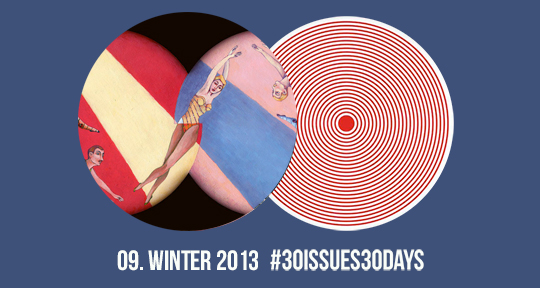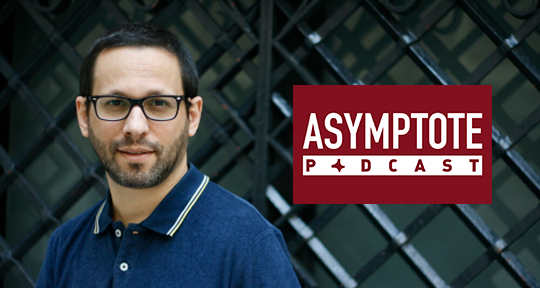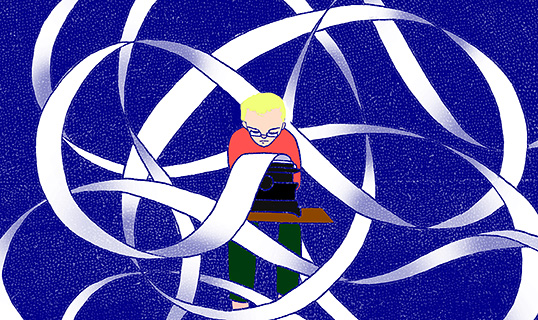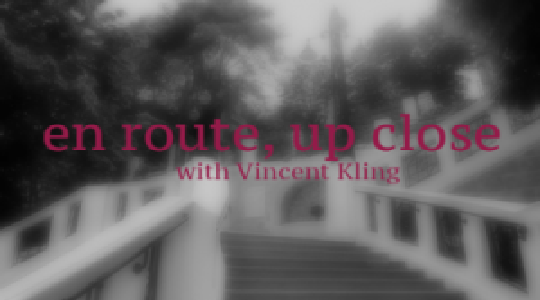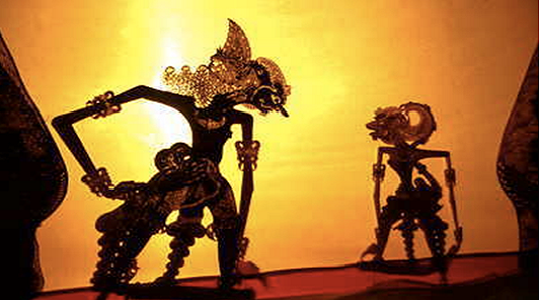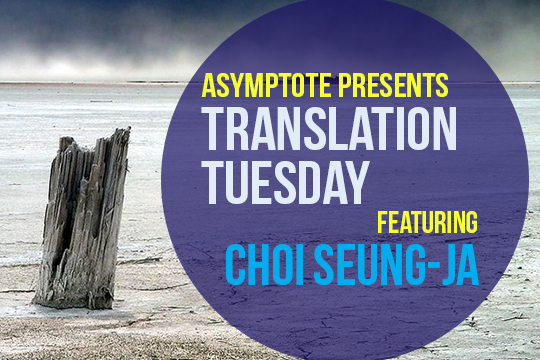Relentless time is the subject of these poems by Choi Seung-ja, an iconic figure in Korean literature, so influential that she was called “the common pronoun of the 80s’ poets.” But the existential despair captured in broad bravura strokes here transcends both culture and era.
Two Kinds of Death
Like a rumor or drifting cloud
the lodger in Cheongpa-dong passes away
and morning’s black phone call rings.
Suddenly at the edge of the dining table
the species of mothers and fathers
melt into the longing spirit of water and fire
the rice and soup in a chorus
recite the deceased’s prehumous words:
Wishing to die
yet going mad
A black boat appears from the blue sky.
Full of cosmic humidity
transmitting an extraterrestrial Morse code
on and off
Death sends us a message.
Someday in Manhattan
John Lennon dies and
the voice of the dead is floating.
Mama don’t go
Daddy come home
At the End of the Deserted Street
The smell of sin, the smell of sin, ruins of sadness,
still lingering in my soul.
Every day I wake up at the end of the deserted street.
Last night’s dreams, sins of the past,
unlivable dreams, the sin of living incompletely.
In the dark of last night
the clock that measured all of me
keeps ticking in the same countdown.
Run, time, run
putting on my frail weight
made of only dream and sin
speed like a bullet.
I want to watch my bones shatter.
I want to snigger in the windblown
dust of my bones.
Fearful Green
The earth emits mysterious heat.
The chirping of birds withers midair.
While the ashen sky retreats
aching leaves turn.
The thirsty verdure grows by degrees.
At last green’s fearful chaos pours out.
Everything will be over.
Time will come to rest.
In the air, the sneer of green afire.
Into the deep, deep earth, the sap drains.
The barren background sways.
The sun comes to a halt forever.
Like a ghost only green remains in the world.
Translated from the Korean by Lei Kim
Choi Seung-ja was born in 1952 and made her literary debut in 1979. Shortly afterwards, she became the icon of youth and freedom in Korean literature. She lived through the 1980s, the Dark Age in modern Korean history, both in political and social aspects, and she was called “the common pronoun of the 80s’ poets.” For her the time was “time… feeding me shit / yet ruthlessly leaving me alive” (“Unforgettableness or Oblivion”) and “never-ending period.” She declared herself “the priest of void” and executed poems that manifested the indignity of the period. Among her poems, the expression of assumed evil, masochism, self-contempt, and stark vulgarism signal the advent of a new style of poetry. Women in the patriarchal society are bound to live with self-abuse as a pathetic defense to overcome the crisis of self-existence. Her works show how far she has pushed the bar set by the male dominant system, and in some point, she made her own escape from the conventional women’s poetry. In consequence, she is reputed to have started “feminist poetry” for the first time in the history of Korean poetry, so it is nonsense, without consideration of her impact on others, to talk about Korean women’s poetry. Her works include The Love Of This Age, A Merry Journal, The House Of Memory, My Green Grave, and Lonely And Faraway.
Lei Kim is a literary translator. She has translated Lee Jangwook’s poetry collection, Request Line at Noon (Codhill Press, 2016), and received the Modern Korean Literature Translation Commendation Award.
*****
Read More Translation Tuesdays:




